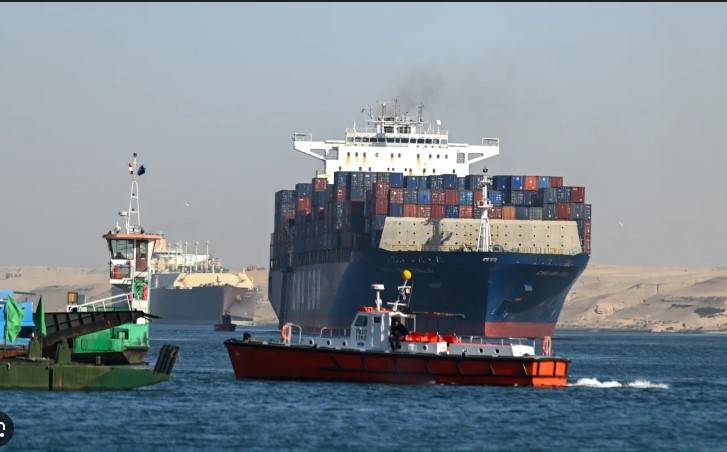Huthi attacks force ships to make costly detour around Africa: US

Stay tuned with 24 News HD Android App

Attacks by Huthi rebels in Yemen have forced three-fourths of US-flagged ships to avoid the Red Sea and instead take the long and expensive detour around the southern tip of Africa, the US national security advisor said Sunday.
"Seventy-five percent of our US flag shipping now has to go around the southern coast of Africa rather than going through the Suez Canal," Mike Waltz told CBS's "Face the Nation."
He added: "The last time one of our destroyers went through the straits there, it was attacked 23 times."
Recent US airstrikes against the Iran-backed rebels -- the first since President Donald Trump took office in January -- have "taken out key Huthi leadership," including the head of their missile program, Waltz said.
"We've hit their headquarters. We've hit communications nodes, weapons factories, and even some of their over-the-water drone production facilities."
The Huthis say they have targeted ships in the Red Sea in solidarity with Palestinians since the start of Israel's Gaza war. They say the recent US bombing attacks on Yemen claimed more than 50 lives.
On Tuesday, they said on Telegram that they had fired missiles and drones at the aircraft carrier USS Harry S Truman, part of the US fleet in the northern Red Sea. Those attacks were unsuccessful, NBC reported.
Waltz blamed the administration of Joe Biden for launching only "pinprick attacks" against the Huthi, allowing "one of the world's most critical sea lanes (to) get shut down."
He added: "The Trump administration and President Trump have decided to do something much harder, much tougher."
When queried Sunday about reports of fresh strikes in Yemen, a US defense official told AFP that American forces were "conducting strikes across multiple locations of Iran-backed Houthi locations every day and night in Yemen."
Traveling around the southern tip of Africa can double the time it takes a ship to pass between Europe and Asia, adding nearly $1 million in costs, according to LSEG Shipping Research.
US Secretary of State Marco Rubio discussed the matter with Israeli Prime Minister Benjamin Netanyahu in a call on Sunday.
Rubio "conveyed" the Trump administration's "determination to restore freedom of navigation in the Red Sea through military operations" against the Huthis, a State Department readout said.
It added that Rubio also "discussed Israel's ongoing military operations in Gaza" and reiterated "US support for Israel."
Huthis say one killed in strikes blamed on US
Yemen's Huthi rebels said one person had been killed and 13 others injured in strikes late Sunday on the capital Sanaa that they blamed on the United States.
"A citizen was killed and 13 others were injured including three children in the final toll of the US aggression on a residential building in the Aser area," in Sanaa, said Huthi health ministry spokesperson Anees Alasbahi in a statement.
An AFP correspondent in that area of Sanaa saw the remains of a building destroyed in an apparent strike.
Earlier, Huthi media had reported US strikes on a residential building in Sanaa as well as in the group's rebel heartland of Saada.
The United States did not immediately confirm whether it had conducted strikes on Sanaa, but a defence official told AFP: "CENTCOM (US Central Command) is conducting strikes across multiple locations of Iran-backed Huthi locations every day and night in Yemen."
On March 15 the United States announced a new military offensive promising to use overwhelming force until the rebels stop firing on vessels in the key shipping routes in the Red Sea and Gulf of Aden.
That day saw a wave of US air strikes that officials said killed senior Huthi leaders, and which the rebels' health ministry said killed 53 people.
The Huthis targeted ships in the Red Sea and Gulf of Aden after the start of the Gaza war until a ceasefire began in January, claiming solidarity with the Palestinian people.
Earlier this month, they threatened to renew attacks on shipping in the vital maritime trade route over Israel's aid blockade on the Palestinian territory, triggering the first US strikes on Yemen since President Donald Trump took office in January.
The rebels have also claimed attacks targeting Israel in recent days, vowing to escalate after the resumption of massive military operations in the Gaza Strip.
